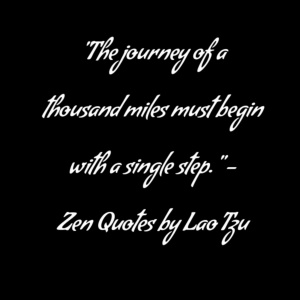
Synopsis:
CHAPTER 1
FIVE RULES FOR ENGAGING READERS OF YOUNG ADULT FICTION
Before you even start putting pen to paper (or finger to keyboard), there are some issues that need to be addressed. A lot of writers out there think writing YA fiction is easy. It’s not. Some mistakes you might make will condemn your book to languish on the slush pile forever. So before we even talk about the nitty–gritty of how to shape your book—-character, plot, setting, point of view—-we need to talk about the five key elements that can make or break you as a YA writer.
THE HOLDEN CAULFIELD RULE—-DON’T BE A PHONY!
Imagine traveling to a planet where your survival depends on hiding out among the inhabitants, where being recognized as a phony would mean instant annihilation. In that situation, you’d want to study the locals until you knew just how to look and sound and respond like them. It is the same in YA fiction. In this case, sudden death occurs when the reader, stumbling upon a false image, loses interest. The book closes with the splintering sound of a fatal bullet.
It’s no exaggeration.
Holden Caulfield, the protagonist of J. D. Salinger’s Catcher in the Rye, was always railing against the phoniness of other people, partic-ularly adults. The enduring popularity of Catcher in the Rye demon-strates that teens today are the same way—-they despise fakes.
YA FICTION RULE #1: THE LIFE OF THE STORY DEPENDS ON THE WRITER’S ABILITY TO CONVINCE READERS THAT THE PROTAGONIST IS ONE OF THEM.
The key to writing a successful YA novel means knowing kids well enough to channel their voices, thoughts, and emotions. (“Kids” is used as an operative word here. The official YA audience encom-passes twelve– to eighteen–year–olds, but it is expanding as chil-dren’s book publishers work to attract readers as young as ten and eleven, and adult publishers reach to capitalize on the growing mar-ket.) While some of your readers may be a little younger than the twelve–to–eighteen target—-children aged ten to twelve tend to read above their age—-and some may be a little older, keep in mind that you have to convince all segments of your audience that you know what it feels like to be a young person today. If you can’t con-vince your audience that you know how they feel about the world today and express yourself the same way, you will never reach them.
AVOID THE PREACH ‘N’ TEACH
Whether YA readers attend elementary or secondary school isn’t an issue when it comes to the importance of YA Fiction Rule #2.
YA FICTION RULE #2: DON’T BE CONDESCENDING TO YOUR READERS.
Young people won’t abide stories that suggest that their turmoil or idealism will pass when they “grow up.” Brent Hartinger, author of Geography Club, says, “I’m a big believer that kids are smarter than we think they are.…I think kids can handle complexity and nuances, and the advantage to writing that way is that the book appeals to both teenagers and adults.”
Many adults read fiction as an escape—-teens are no different. Im-agine spending a long day in school, learning boring lessons ’cause you’re supposed to, having everyone from parents to teachers to em-ployers telling you what to do, how to think, what to wear, then pick-ing up a novel—-and having someone else trying to shove another lesson down your throat! I can’t imagine a bigger letdown.
Don’t deal with young people by trying to push them in one direc-tion or another. Deal with them where they’re at now.
SOAK IT UP!
A word of caution: don’t emulate your favorite authors, but learn from them. You’ll want to create work that is truly your own. In the resource guide at the back of this book, along with details such as schools that offer writing degrees with a YA focus, you’ll find listings for websites that recommend great YA fiction.
YA FICTION RULE #3: READ, READ, READ TODAY’S
YA FICTION.
The benefits to reading what’s already on the market are phenom-enal. It will familiarize you with what’s selling, how kids today talk, what they wear, what issues concern them, and so on. If you don’t have easy access to a teen, reading books meant for teens is probably the next best thing to having a teen personally tell you what he or she would like to read.
IDEALS FIRST, MEALS LATER
Writing a successful book that aims to attract the widest possible audience should be every writer’s goal, shouldn’t it? The answer is yes and no. It helps to have a general audience age in mind, but you don’t want to be consumed with thoughts about how and whether you’ll sell your work.
YA FICTION RULE #4: SILENCE YOUR WORRIES ABOUT COMMERCIAL CONSIDERATIONS.
This allows you to concentrate on your primary objective, which is to tell your story. If a nagging inner voice surfaces or someone dis-courages you, rather than pulling on earphones and listening to music as a teenager might, transform the voices through the power of your imagination into “white noise.” This is the all–frequency sound emit-ted from machines that imparts a feeling of privacy, calming you and allowing you to focus on that world you’re creating. Keep your artis-tic integrity—-your ideals—-ahead of how commercially success-ful—-your meals—-you want your book to be. If you focus on writ-ing the best possible book, commercial success will follow later.
As your manuscript develops while you work through the guide-lines provided in the ensuing chapters, your audience will become as clear to you as if you were speaking on a stage and looking into an auditorium full of people. If you subsequently work with an agent, the two of you can determine whether the manuscript should be pitched to editors specializing in YA, adult fiction, or both. But the fate of your manuscript will still be up in the air. Editors, who are in-vested with the power to buy or decline a manuscript, will ultimately determine to whom the book will be marketed.
The significant rise in the success of YA novels has opened the way for a multiplicity of categories, and just to give you an idea, I’ve listed some alphabetically: adventure, chick lit, comical, fantasy, fantasy epics, futuristic, gay–themed, historical, multicultural, mystery, reli-gious, romantic, science fiction, sports, and urban. If your story idea doesn’t fit into any of these categories, you may have to invent one. Consider it an opportunity.
THE UNDISCOVERED COUNTRY
From this point on, let your creative spirit be guided by YA Rule #5.
YA RULE #5: IN YOUR NEW WORLD OF YA FICTION, ERECT NO CONCRETE BARRIERS, WIRE FENCES, OR ONE–WAY SIGNS. INSTEAD, FORGE NEW PATHS.
The YA field welcomes innovators. Encapsulating the newness of the time, YA novels are being published in nontraditional formats. Three YA authors banded together to compose a novel. Another entry is an interactive book with websites that combines reading with the world of Internet gaming. What will your contribution be? Think fresh.
Remember that young people are trendsetters—-they’re always looking to differentiate themselves from others. It’s how teens forge their own identities. Don’t be afraid to push the boat out as well. Coming up with a fresh idea will set you apart from the pack and might be the thing that sparks an editor’s interest in your work.
Okay, consider yourself warned. Now that you know what not to do, it’s time to learn how to craft the next YA bestseller. Step by step, this book will walk you through the mechanics of what makes a great YA novel.
Chapter 2 is about generating an idea, your story. It will talk about different ways to uncover stories that YA readers will want to read about. It will also help you discover new possibilities for stories with-in yourself that you may not have known you had.
Chapter 3 will discuss characters—-the heart of any manuscript. How to breathe life into interesting characters your reader will con-nect with is the main lesson of this chapter, but we’ll also discuss how to find the best characters for the story you want to tell.
Chapter 4 is all about plot, story, and how to tell the difference. Plot is like a machine that propels your manuscript forward, while story is the overall impression you want the plot to create in the reader’s mind.
Chapter 5 is about how to put together a believable plot. It’s all about action—-establishing the main conflict of your manuscript and putting it in motion. Of special concern will be integrating the events of the manuscript with the characters’ personalities, making sure that the characters react to events in believable ways.
Chapter 6 is about setting and timeline. Setting is the background of your story—-the when and where. This chapter is about understand-ing the atmosphere of your story and effectively manipulating the details of that atmosphere to influence your manuscript’s tone.
Chapter 7 is about point of view—-the perspective from which you tell your story. Point of view can be an extremely effective tool for connecting with character and clarifying or confusing the reader about events—-provided you use it correctly.
Chapter 8 is about the meat of your manuscript—-dialogue. Dia-logue provides an opportunity for your characters to interact and opens up another way to build your characters.
Chapter 9 is about the theme of your manuscript. Theme is the overall impression you want your readers to take away. It’s a subtle but effective way for the author to express himself through the story.
Chapter 10 is about wrapping it all up, bringing your plot to a suc-cessful resolution. Endings can be very tricky, so there will be de-tailed discussion about what sorts of conclusions to avoid.
Chapter 11 is about how to find constructive feedback and incor-porate it into your revisions. All authors need to edit and revise their manuscript, and this chapter will explain why the editing process is so necessary.
Chapter 12 is about getting published—what agents and editors do and how to get your work into their hands. This is the business chap-ter-—the one that details exactly how the publishing industry works.
Chapter 13 is about YA nonfiction and the emerging genre of New Adult. The YA market is constantly in flux, and this chapter will ex-pose you to two recent developments in the market.
I hope all of these tools will be helpful to you as you begin the pro-cess of writing the next YA bestseller. Let’s begin exploring that magi-cal new world.
About the Author:
Regina L. Brooks is the founder of Serendipity Literary Agency and has been developing award-winning authors and books for over a decade. She has been highlighted in several national and international magazines and periodicals, including Poets and Writers, Essence, Writer’s Digest, and Sister2Sister, Forbes, Media Bistro, Ebony, and Jet. She lives in New York City.
Connect with Regina:
@serendipitylit
facebook.com/serendipitylit
serendipitylit.com





 You shouldn’t set yourself on fire to keep others warm
You shouldn’t set yourself on fire to keep others warm

 YA Dystopian book survey – Your opinions matter
YA Dystopian book survey – Your opinions matter
 I can’t believe that another new year is on our doorsteps again. It doesn’t seem that long ago when I was sat in front of my computer and listing all the things I wanted to achieve in 2017. Did I achieve them? Yes, I think I did get my grubby mits on some, but not as much as I would have liked. Are you thinking the same thing? If you are, I’ve come up with a few ideas that might help you finish that novel, get published or even merely feel just in calling yourself a writer.
I can’t believe that another new year is on our doorsteps again. It doesn’t seem that long ago when I was sat in front of my computer and listing all the things I wanted to achieve in 2017. Did I achieve them? Yes, I think I did get my grubby mits on some, but not as much as I would have liked. Are you thinking the same thing? If you are, I’ve come up with a few ideas that might help you finish that novel, get published or even merely feel just in calling yourself a writer. I love a good ghost story. The UK has such profound and dark historical roots that tales of the paranormal are everywhere. From the headless horseman that rides out on Halloween, to the White Lady that appears whenever disaster is near, their stories are spine chilling and engrossing. You might be forgiven for thinking that Halloween is the best time for such supernatural frights, but in the UK there is a strong tradition of telling ghost stories at Christmas.
I love a good ghost story. The UK has such profound and dark historical roots that tales of the paranormal are everywhere. From the headless horseman that rides out on Halloween, to the White Lady that appears whenever disaster is near, their stories are spine chilling and engrossing. You might be forgiven for thinking that Halloween is the best time for such supernatural frights, but in the UK there is a strong tradition of telling ghost stories at Christmas.


